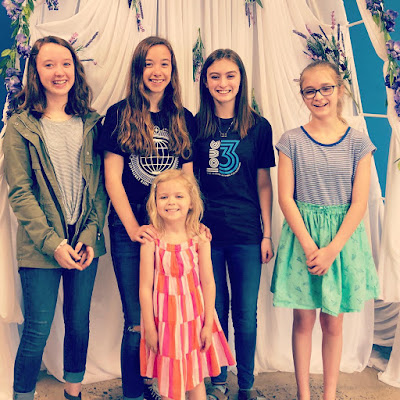Sit.
I've sat and listened to friends talk about their children. Things their kids are doing. Things their kids aren't doing. What's going well, what's not going great.
Many times as my friends are talking, the teacher in me begins ticking down the list of things that may be the culprit to their concerns. I deal with other peoples' children on a daily basis and consider myself fairly familiar with a lot of standard childhood issues and concerns: ADD. ADHD. Allergies. OCD. Bi-polar. Stressed. Depressed. Hygiene. Poverty. Red dye. Caffeine. Exercise. Full moon. Day of the week. Middle Child. Eldest. Baby. Blended family. Privileged. Local. Not local. Girl. Boy. Racial issues. Religion. Puberty.
I can usually tell you a lot about a child based on their background information. Of course, every child and situation is different, but there are a whole lot of similarities.
Because of the nature of my job (and my husband's jobs), I've worked with literally thousands of students, and I can usually pinpoint a few things that could be to blame for whatever behavior is occurring. I'm ashamed to say that sometimes I've quickly assumed things about a particular child based on a list of behaviors, rather than listening to the parent's words. I often take it upon myself to diagnose the issues--when my friends didn't share their struggles with me to get a prescription. There are medical professionals who can handle that. Usually it was because they just wanted to talk about it. To talk through it. To say it all out loud in a safe place. To talk without having to explain.
There have been other times when I've shared my heart with friends and I've felt the coldness of a quick pat answer, a "diagnosis" or explanation. They've given me a verse (sometimes misquoted) or a chirpy sentence that really doesn't make me feel any better at all. They've been quick to come up with something that could explain away my feelings, sometimes leaving me feeling confused and even more defeated after our conversation.
One of the most profound things I learned from my dear friend, Jill, was that often the best answer when a friend shares their woes is your silence. She reminded me of Job's friends came to be with him in his time of need, and that sat in silence with him (Job 2:13). They recognized that his grief was too great to be soothed by their words or actions. So, they sat beside him.
Many times as my friends are talking, the teacher in me begins ticking down the list of things that may be the culprit to their concerns. I deal with other peoples' children on a daily basis and consider myself fairly familiar with a lot of standard childhood issues and concerns: ADD. ADHD. Allergies. OCD. Bi-polar. Stressed. Depressed. Hygiene. Poverty. Red dye. Caffeine. Exercise. Full moon. Day of the week. Middle Child. Eldest. Baby. Blended family. Privileged. Local. Not local. Girl. Boy. Racial issues. Religion. Puberty.
I can usually tell you a lot about a child based on their background information. Of course, every child and situation is different, but there are a whole lot of similarities.
Because of the nature of my job (and my husband's jobs), I've worked with literally thousands of students, and I can usually pinpoint a few things that could be to blame for whatever behavior is occurring. I'm ashamed to say that sometimes I've quickly assumed things about a particular child based on a list of behaviors, rather than listening to the parent's words. I often take it upon myself to diagnose the issues--when my friends didn't share their struggles with me to get a prescription. There are medical professionals who can handle that. Usually it was because they just wanted to talk about it. To talk through it. To say it all out loud in a safe place. To talk without having to explain.
There have been other times when I've shared my heart with friends and I've felt the coldness of a quick pat answer, a "diagnosis" or explanation. They've given me a verse (sometimes misquoted) or a chirpy sentence that really doesn't make me feel any better at all. They've been quick to come up with something that could explain away my feelings, sometimes leaving me feeling confused and even more defeated after our conversation.
One of the most profound things I learned from my dear friend, Jill, was that often the best answer when a friend shares their woes is your silence. She reminded me of Job's friends came to be with him in his time of need, and that sat in silence with him (Job 2:13). They recognized that his grief was too great to be soothed by their words or actions. So, they sat beside him.
And they let him be.
There were times when Jill would post something on her blog that cut my heart to the core. There were phone calls and table discussions that I can't talk about to this day. There weren't words that would fix her or make the disease leave her body alone. There weren't other things that could explain the issue. There were other times that I would share things that had broken my spirit. Things that were cruel or confusing and there was nothing she could physically do to help. So, when words wouldn't help, and when phrases wouldn't help, and when we had prayed the prayers and hugged and cried, we were often only left with one word:
"Sitting."
There were only a select few of us who recognized the power of that word. For when one of us posted that single word in our blog comments, in an email, or on our Facebook wall--we were telling the other person that they weren't alone. We knew that someone else was sitting beside us. We knew the other person was allowing us to walk through our grief and concerns and problems, and that we were heard, and that we were loved, and that we were free to say and think those things we only dare to say with our people.
My personal challenge for 2014: Sit.
Sit and be present in the moment. Sit and listen to the person sharing their joy and agony. Stop trying to fix. Stop trying to diagnose. Stop tuning out the conversation and letting your mind go elsewhere. Stop trying to do a million things while chatting on the phone.
Give the loved ones asking for your attention, your attention. Give them your friendship. Give them your time. Give them your love. Give them your support. Give them encouragement.
And when words fail?
Sit.



This is so good and I am so SO guilty. I'm sorry, friend. I love you. <3 I hope we can sit more in the year ahead.
ReplyDeleteYou are absolutely right.
ReplyDeleteSometimes, actually most of the times, just letting it all out and pouring it in front of someone, solves half of the problem.
All my friends call me a great listener because when they come to me, I just listen to whatever they have to say and then give them a tight hug. They go back smiling :-)